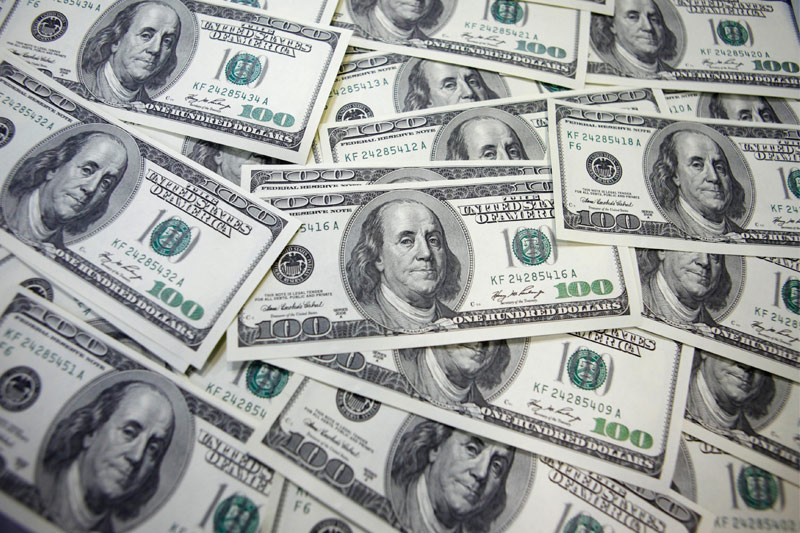Investing.com - The dollar edged higher against the yen in early Asia on Monday with investors looking at continued overall weakness in the greenback sparked by comments last week from the US president and treasury and commerce secretaries that raised concerns of a currency war.
USD/JPY changed hands at 108.62, up 0.03%, while AUD/USD traded at 0.8117, down 0.09%. NZD/USD traded at 0.7361, up 0.19%.
In Asia, New Zealand reports its trade balance for December with a NZ$3.42 billion deficit seen on year. Japan reports household spending, seen down 0.6% on month and up 1,6% on year for December. As well, the unemployment rate is expected to hold steady at 3.7% and retail sales are seen up 1.8% on year.
Later in Australia, the NAB business confidence and NAB business survey are due.
The U.S. dollar index, which measures the greenback’s strength against a trade-weighted basket of six major currencies, was last quoted down 0.36% at 88.87.
On Tuesday, the Federal Reserve meeting, the last under the leadership of Janet Yellen before she hands the chairmanship over to Jerome Powell, will be in focus as well as Friday’s U.S. jobs report for January and Wednesday’s euro zone inflation data.
Last week, the dollar index recorded its largest weekly decline since June, following comments by the U.S. Treasury secretary earlier in the week welcoming a weaker currency.
The dollar slumped to three year lows against a currency basket after U.S. Treasury Secretary Steven Mnuchin said on Wednesday at Davos that a “weaker dollar is good for trade.”
The dollar recovered after President Donald Trump said Thursday the U.S. currency would get “stronger,” appearing to contradict Mnuchin’s comments. Trump added that he thought the remarks by his Treasury secretary had been taken out of context by investors.
Commerce Secretary Wilbur Ross mudding the waters even further detailing in Davos that "What was perfectly appropriate in 1945 is singularly inappropriate as we sit here this year. There's no longer a need to subsidize China, or Japan, or Europe with our money."
The comments were seen by markets as a departure from traditional U.S. currency policy. The risk of a weaker dollar is that it could undermine confidence in a wide swath of U.S. assets, including the U.S. Treasury market.
European Central Bank President Mario Draghi criticized Mnuchin’s comments about the dollar on Thursday, warning that such language violated longstanding international agreements designed to prevent currency wars.
Draghi said recent exchange rate volatility is a source of uncertainty and needs to be monitored for its impact on short term price stability.
The dollar remained lower after data on Friday showing that U.S. economy grew by an annualized 2.6% in the fourth quarter, rather than the 3% expected, down from 3.2% in the previous three months.
